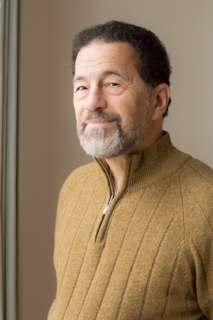A Quote by Antony Blinken
The Revolutionary Guard Corps is the official protector of Iran's revolution, with 100,000 troops divided into air, naval and ground divisions. It plays a large role in Iran's economy. Its international paramilitary arm, the Quds Force, is Tehran's main vehicle for supporting Shiite proxy forces.
Related Quotes
It wasn't just Shia that would go to Tehran and see the commander of the Quds Force and others and the legitimate government leaders. It was also Kurdish leaders and Sunni Arabs who would even link up with Qassim Suleimani, the commander of the Quds Force - maybe not in Tehran but in Turkey or somewhere else.
But the U.S. has to be careful. If our strategy depends on Sunnis doing the fighting to clear Mosul and Ramadi - and, as near as I can tell, that is the strategy - then you have to be careful that Sunnis don't perceive the U.S. to be operating arm in arm with Iran or with Iranian-backed Shiite militias that Abadi - Prime Minister Abadi is using in Iraq, so that, in effect, we're fronting for Iran.
It's easy to say, let's go in and get the bad guys. But you have a divided country of Sunnis and Shias. The United States goes and takes action there on behalf of the Iraqi government. You've got Iran coming in and saying we're going to stand with Iraqi Prime Minister Nuri al-Maliki, so now we're aligning ourselves with Iran, and if we do air strikes, becoming de facto air force for them.
After the revolution of 1979, Iran embarked on a policy of sectarianism. Iran began a policy of expanding its revolution, of interfering with the affairs of its neighbors, a policy of assassinating diplomats and of attacking embassies. Iran is responsible for a number of terrorist attacks in the Kingdom, it is responsible for smuggling explosives and drugs into Saudi Arabia. And Iran is responsible for setting up sectarian militias in Iraq, Pakistan, Afghanistan and Yemen, whose objective is to destabilize those countries.
International inspectors are on the ground and Iran is being subjected to the most comprehensive, intrusive inspection regime ever negotiated to monitor a nuclear program. Inspectors will monitor Iran's key nuclear facilities 24 hours a day, 365 days a year. For decades to come, inspectors will have access to Iran's entire nuclear supply chain. In other words, if Iran tries to cheat - if they try to find build a bomb covertly, we will catch them.
My advice for Obama concerning Iran is just to do what you already promised you would do, open up communications with Iran. Which is what I did after the Shah was deposed, as you know when the revolutionary government came in, I still had diplomatic relations with Iran, otherwise the hostages wouldn't have been there. We had about, as you know, 60 some diplomats in Iran, they had about the same number in Washington.
Iran is hard to understand. Although it is ruled in an authoritarian manner, it's not a state in which everything is controlled from one center. There are many forces that work in parallel: the military, the intelligence service, the Revolutionary Guard, the clergy and the government. They all share a fear of the nation's youth.
My guess is that Trump will begin withdrawing troops from Europe at a slow pace. He will demand a renovation of the Iran Accord and get nowhere with this. There might be more US sanctions on Iran. However, the Iranians will not compromise with Trump, and barring a naval confrontation in the Persian Gulf, it will be US businesses that will suffer and Trump's frustration level that will go up.
It is clear that there are reasons for discontent in Iran - economic and political reasons. We have told the Iranian leadership repeatedly that the country's economic recovery can ultimately only succeed through greater international economic cooperation. And the precondition for that is not only that Iran refrain from developing nuclear weapons, but also that Iran's role in the region become far more peaceful. We have offered to finally hold true negotiations and talks on that issue.












































